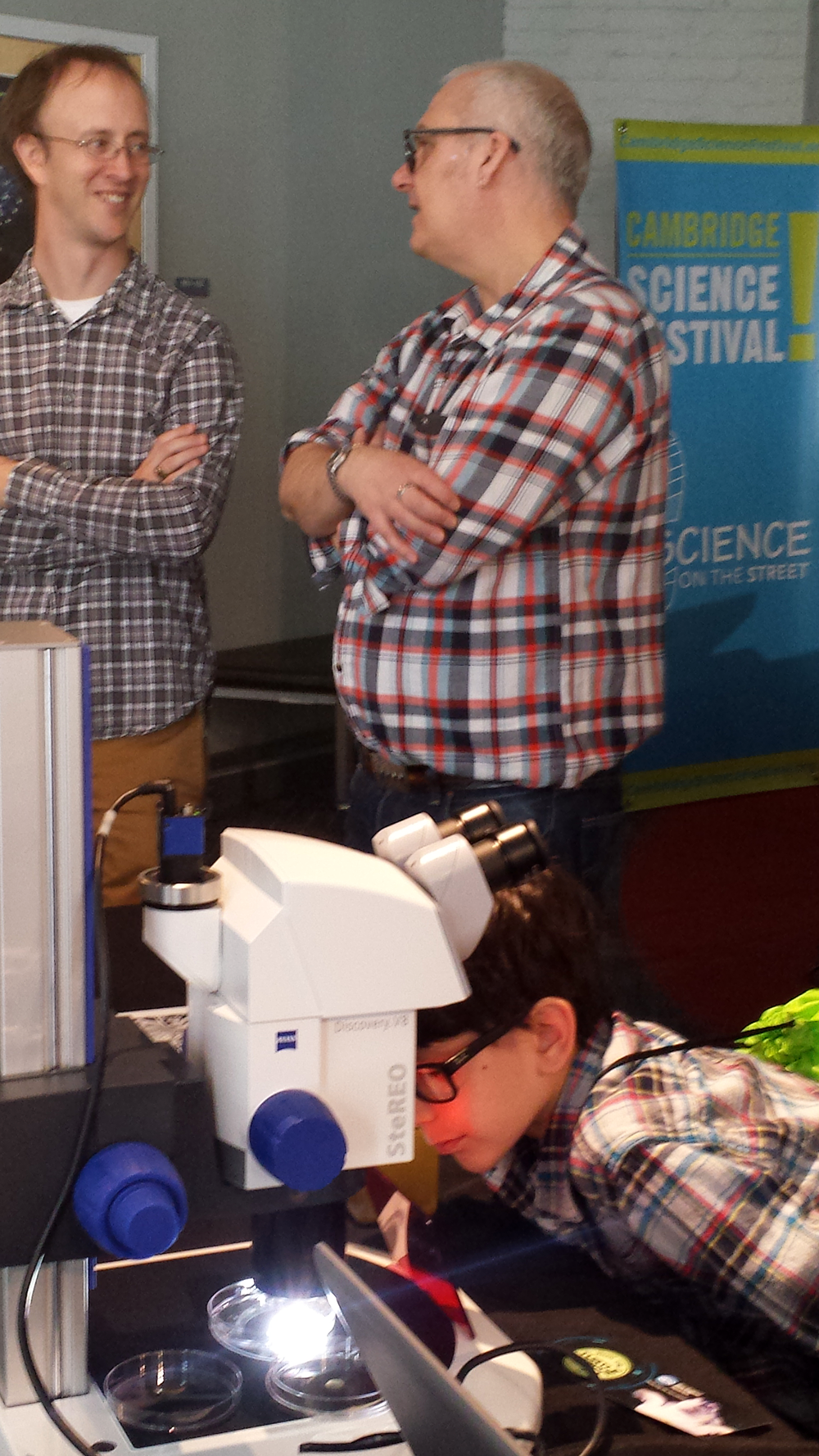Featured Stories
-
Featured Stories, MIT, News | September 21, 2016
An Autonomous Fleet for Amsterdam
MIT, AMS Institute will collaborate to solve complex urban problems for Amsterdam with the development of autonomous "roboats." -
Featured Stories, MIT, MIT EAPS, News | September 14, 2016
Computing the Ocean’s True Colors
Stephanie Dutkiewicz’ phytoplankton models project the future of the ocean as food source and carbon sink -
Featured Stories, MIT News, News | September 7, 2016
Study finds increased ocean acidification due to human activities
More anthropogenic carbon in the northeast Pacific means weaker shells for many marine species. -
Featured Stories, MIT, MIT Sea Grant, News | August 11, 2016
Dean Alden Horn, former director of MIT Sea Grant College Program, dies at 95
Retired U.S. Navy captain made many contributions to Arctic research and undergraduate marine education. -
Featured Stories, MIT, News, WHOI | August 3, 2016
The New York Times Follows Young Ocean Scientists Training in New England Waters
New York Times Science reporter Nicholas St. Fleur joins a crew of young marine scientists as they train with the Woods Hole Oceanographic Institution (WHOI) aboard the R/V Atlantis for the second leg of a 2-week research cruise. Throughout the week, St. Fleur will be reporting live on Facebook on the team’s missions, the vessel and their discoveries happening off of New England’s eastern seaboard. -
Featured Stories, MIT, News | July 27, 2016
The Third Annual Meeting of the Ozone and Climate Project
Oceanographers, marine biogeochemists, atmospheric scientists and climatologists from across the world converged on MIT for the third annual meeting of the Ozone and Climate Project, which aims to understand the Antarctic ozone hole’s impact on Antarctica and the Southern Ocean, and its importance in the global picture of climate change. -
Featured Stories, MIT, News | June 13, 2016
Solving the Mystery of the Antarctic’s Missing Heat
Around the globe, ocean surface temperatures have been rising due to global warming, but the seas around Antarctica haven’t changed much. Now, researchers may have discovered why. -
Featured Stories, MIT, News | June 11, 2016
The Value of Community Engagement with Climate Science
Climate change is arguably one of the biggest challenges that humanity will ever face, and so outreach by climate scientists is a large step towards developing an informed society equipped to address it. -
Featured Stories, MIT, News | June 3, 2016
Response of Global Climate to the Antarctic Ozone Hole
A distinguished group of meteorologists, oceanographers and climatologists will assemble at MIT on June 7-8th, 2016 for the third annual progress meeting of the NSF-supported Ozone and Climate Project, which aims to understand the role of the Antarctic ozone hole and its importance in the global picture of climate change. -
Featured Stories, MIT, MIT News | May 20, 2016
Study Pinpoints Timing of Oxygen’s First Appearance in Earth’s Atmosphere
Beginning 2.33 billion years ago, atmospheric oxygen built up in just 10 million years. -
Featured Stories, MIT, News | May 6, 2016
New Antarctic Ice Sheet Physics Could Explain Ancient Sea Levels and Predict Future Ones
Oceans at MIT sits down with glaciologist Christian Schoof to discuss how "ice cliff collapse" in Antarctica could have produced the Pliocene's high sea levels. -
Featured Stories, MIT, MIT EAPS, News | May 3, 2016
EAPS Dives into the Pale Blue Dot at the 2016 Cambridge Science Festival
For MIT’s Department of Earth, Atmospheric and Planetary Sciences (EAPS), every day is Earth Day. But on April 22nd, 2016, they were excited to share their knowledge and enthusiasm for it with the greater Boston community at the MIT Museum during the Cambridge Science Festival. -
Featured Stories, MIT News | April 28, 2016
MIT outlines progress on its five-year climate action plan
Progress report underscores strong collaboration across campus to address climate change. -
Featured Stories, MIT, News | April 28, 2016
Oceans Alive!: Trawling in the Charles
Ahead of the 2016 Cambridge Science Festival and MIT’s centennial celebration, postdocs from MIT’s EAPS and PAOC chartered a sailboat to collect plankton from the Charles River. Here, they had a chance to interact with the organisms and environment that they model and would discuss with visitors the next day. -
Featured Stories, MIT | April 14, 2016
Southern Ocean Cooling in a Warming World
In contrast to environmental changes due to global warming, new research from MIT’s Program in Atmospheres, Oceans and Climate indicates that Antarctica and the Southern Ocean may be experiencing a period of cooling before warming takes over. And the culprit might be the ozone hole rather than greenhouse gases. -
Featured Stories | March 7, 2016
Research Takes Center Stage at MIT Climate Symposium
At MIT on Climate=Science + Action, speakers examined what we know, what’s left to learn, and the diverse climate-related research happening throughout the institute—from exoplanets to the deep ocean and everything in between. -
Featured Stories, WHOI | February 26, 2016
Life in the Hot Seat
This is the final article of a three-part series covering the Department of Earth, Atmospheric, and Planetary Sciences lectures on “Life in the Ocean.” -
Featured Stories | February 15, 2016
Chasing Whales
Thanks a variety of robotic instruments, researchers are using information about whale behavior to decrease ship strikes and other human-caused mortality events. -
Featured Stories | February 8, 2016
Predators in the Plankton
WHOI researcher Matt Johnson studies three plankton species that illustrate just how wonderfully weird and complex life in the ocean can be. -
Featured Stories | February 3, 2016
AGU Spotlights MIT Synthesis of Ocean Circulation Research
A new MIT study takes stock of what we know and what’s still uncertain about AMOC variability and its role in global climate.






